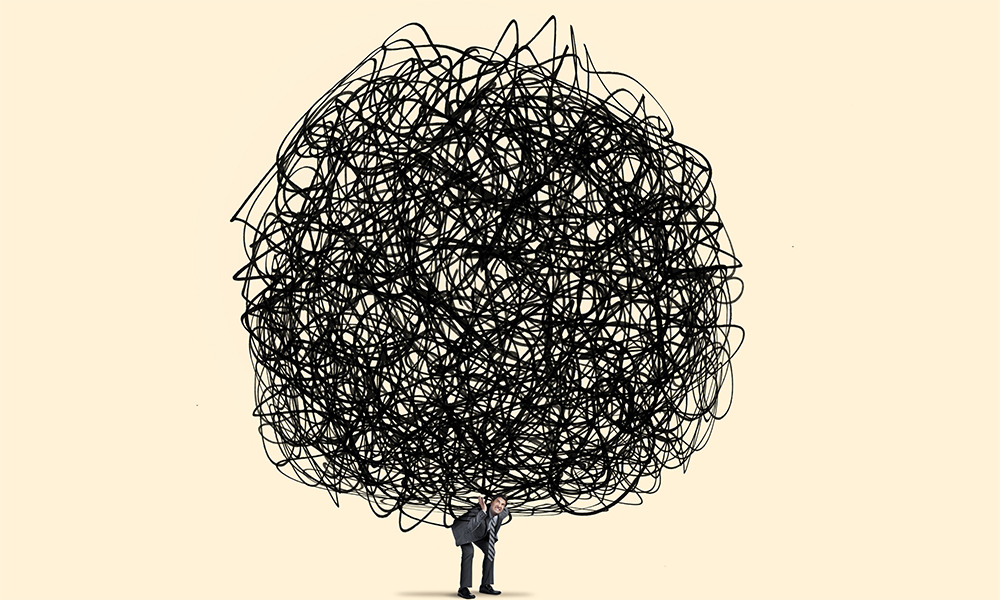“My dyslexia may have been an obstacle in my schooling, but I learned to use it to my advantage – turning it into one of the most powerful tools in my bag of business tricks. It’s been fundamental in guiding the way we communicate with customers; simplicity, clarity and fun are at the heart of our brand values”- Richard Branson
We all struggle with our shortcomings. Many of us tend to ignore, deny or hide our weaknesses. Through this lack of self-awareness or insecurity, we overlook the fact that our disadvantages could be a source of strength and open up new opportunities.
Obviously, one way of tackling your weaknesses is to work towards improving them. This includes traits or behaviours that are clearly holding you back, such as a short temper, discomfort with new technology, poor time management skills, etc. If you’re willing to learn and grow, these types of shortcomings can be overcome quite successfully.
However, all weaknesses aren’t alike. Some of the things you see as shortcomings could actually be competitive advantages in disguise. Think about this at our company level. We compete against players who are much larger than us, have much bigger marketing budgets and sizeable global teams. On one hand, this is a disadvantage. On the other hand, our ability to be more nimble or more entrepreneurial can be a big advantage.
This can well apply at a personal level for all of us.
Reframing your weaknesses as strengths can boost your self-confidence, enhance your professional reputation, and increase your chances of winning the roles and responsibilities you truly want.
So, this week, my message focuses on how you can try to reframe your disadvantage or shortcoming into a strength. With a change in perspective, your supposed flaws could give you a competitive edge.
Here are four ways in which you could make this positive shift:
1. Consider scarcity
In her Harvard Business Review article, Your Weakness May Be Your Competitive Advantage, Dorie Clark recommends positioning yourself as a limited, beneficial resource:
When you’re trying to understand your unique abilities, it helps to think about scarcity. What background or skills do you have that might be rare in a given context?
When aiming for a promotion or new project, your résumé may not match the given criteria exactly – your qualifications or experience may be different from those listed by the decision-makers. In such a situation, it helps to apply Clark’s advice. While your lack of certain skills may be a disadvantage, do you have something else unique to offer? Instead of focusing on what you don’t have, focus on what you do have – and how it can add value.
Let’s say you want to join a hair care team but have zero experience in the product category. However, you do have in-depth knowledge of and strong links within the beauty service industry, including spas and hair salons. Since the team is sure to already have plenty of category experience, you could bring a broader perspective and help create new partnering opportunities. By changing the viewpoint, not only do you reframe your weakness as an asset but also ensure that you stand out from the crowd.
As Clark explains, it’s important to take control of the narrative. If you let other people dominate the conversation, you’ll end up falling short – because your suitability will be measured by their standards. Instead, take the initiative to shine the spotlight on your distinctive skills and how you can bring much-needed value to the table.
2. Recast weakness into strength
You may have labelled certain characteristics in yourself as “weaknesses”. It’s possible, however, to frame these as advantages – not only for other people but also in your own mind.
Do any of the following ring a bell?
You wear rose-coloured glasses. Practicality and planning have their place – but so does optimism. If everyone was cautious and realistic, nothing would ever progress beyond the meeting room. Each team and organisation needs people who believe that big, audacious goals can be achieved, no matter what obstacles are in the way. Instead of viewing your optimism as a flaw, recognise it as a gift. Your positive energy can act as a crucial catalyst to make great things happen.
You’re naïve. If you tend to believe the best of people, you may have felt let down at times. As a result, your willingness to trust others might start to feel like a drawback. But remember: to receive trust, you have to give it – openly, and with no strings attached. For each person who lets you down, there will be numerous others who reciprocate in kind. Your ability to take the first step can go a long way towards building trust, which is the glue that holds any team together.
You overthink everything. While some people are spontaneous and willing to take a leap of faith, others go over every step of the plan dozens of times, looking for chinks in the armour. While this can sometimes feel like a liability, it also offers a huge advantage: since you’ve thought of every possible obstacle, you can be incredibly well-prepared for future eventualities. Plus, your detailed analysis helps to strengthen the plan of action as much as possible, before the actual execution.
You’re a Jack of all trades, master of none. Some people pick a discipline and stay focused on it throughout their careers. For others, the professional path is more meandering, with detours into various areas. Your lack of specialisation may seem like a drawback, but remember that a generalist perspective is just as valuable. Interdisciplinary insights are necessary for innovation and problem-solving, especially in this time of increasing complexity. Clark recommends seeing yourself as a source of fresh ideas:
You’re never going to win the argument that you’re better qualified than someone who has studied a relevant business discipline-or who has worked in the field for years. So don’t even try. You’re differently qualified, and your unique perspective may be just what the company needs to move to the next level.
3. Find what you lack – in other people
Being aware of your weaknesses opens up opportunities for effective collaboration. Seek out and work with people whose strengths can balance out your deficiencies. This way, your talent will get a chance to really shine. In his article, 4 ways weakness is advantage, Dan Rockwell explains:
If you’re the idea person, for example, chances are you desperately need organizers on your team. Creatives, in order to succeed, must embrace and celebrate limits, systems, and structure. But organization frustrates creatives.
Embrace people with strengths that expand you, even if they frustrate you.
By knowing your own imperfections and embracing the corresponding strengths in others, you can build mutually rewarding relationships and stronger teams.
4. Admit drawbacks to reinforce strengths
If you turn a blind eye to your flaws and insist that you’re good at everything, it’s tough for people to trust you – after all, nobody is perfect! On the other hand, being frank and to the point about your shortcomings increases your credibility. This way, when you talk about your strong points, your co-workers and clients are much more inclined to believe you. Acknowledging weakness goes a long way towards creating trust and goodwill.
What do you see as your professional Achilles’ heel? Can you think of a way to reframe it as a competitive advantage?
I look forward to your thoughts.
Vivek








Agree we should focus on our strengths